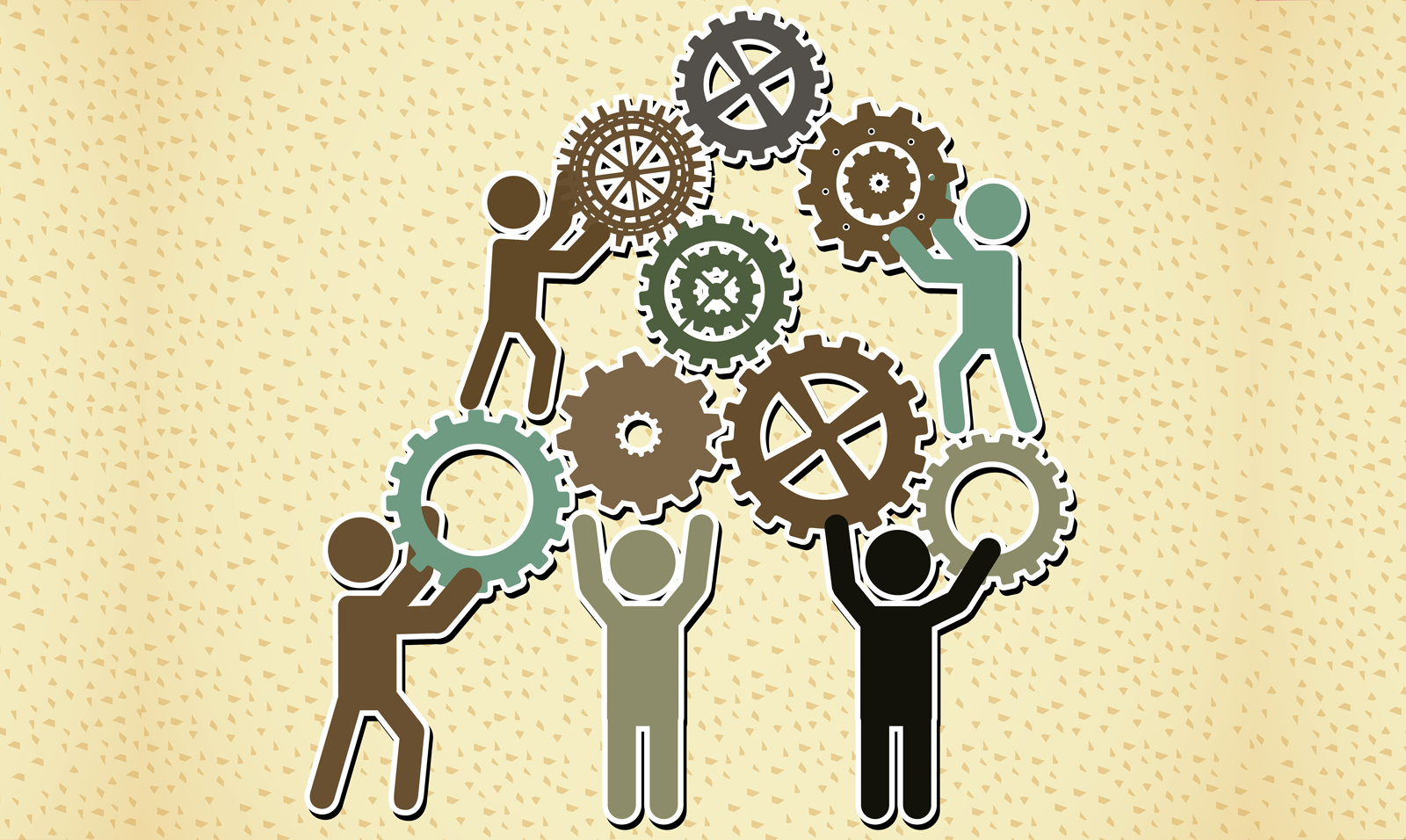The Plateau of Plenty: Welcoming the Age of Abundance
The Rise of the Real Social Network: From Anti-Social Algorithms to Planetary Uplift
The $50 Trillion Unlock: Why GovTech, Not the BRI, Will Transform the Global South
Why Thinking Big Is the Safest Bet in the Age of AI and Exponential Technologies
Perplexity Price: 200B For Apple. Bonus: CEO
Multi-Disciplinary Approaches Will Win the Future
In an age of exponential technologies, it’s tempting to believe that raw computational power or the latest algorithm will define the future. But the truth is more nuanced—and more human. The most transformative breakthroughs won't come from any single discipline. They will emerge from the rich, often messy, intersection of many. Multi-disciplinary approaches are no longer optional; they are essential.
Beyond Technology Intersections
When people speak of AI, biotech, blockchain, or quantum computing, they often focus on how these technologies intersect with one another. Yes, AI can enhance biotech research, blockchain can secure health data, and quantum computing might unlock simulations never thought possible. But that’s only the surface.
True innovation arises not just from the convergence of technologies, but from the integration of fields of thought—art, ethics, geography, sociology, theology, and design. As Steve Jobs famously said, “It’s in Apple’s DNA that technology alone is not enough. It’s technology married with liberal arts, married with the humanities, that yields us the results that make our hearts sing.” His insight wasn’t poetic fluff—it was a playbook.
Rwanda and the Geography of Innovation
Consider the story of drone delivery companies that chose to launch in Rwanda. From a purely technological lens, Rwanda might seem like a poor testbed: its infrastructure is underdeveloped, logistics are a challenge, and it lacks Silicon Valley-style VC density.
But therein lies the advantage.
Rwanda’s sparse infrastructure made it the perfect canvas for something new—where drones could leapfrog roads entirely and save lives by delivering medical supplies to rural hospitals. It was an example of what happens when technology meets geography, when innovation respects place and purpose, not just hardware.
Spirituality and Corporate Culture
Technology is often seen as cold and rational, but the cultures that build it are deeply human. Great companies are not engineered through metrics alone. They are nurtured through values, meaning, and purpose.
You can’t build a great company without building a great culture. And you can’t build a great culture without a moral compass. That compass, whether rooted in faith, ethics, or a broader spiritual understanding of our place in the universe, guides how companies treat people, make decisions, and engage with society.
This is particularly relevant in AI, where the stakes are not just about profit or productivity, but about humanity itself.
AI Safety Demands Enlightened Collaboration
Many top tech entrepreneurs—Elon Musk, Sam Altman, Demis Hassabis—have warned that artificial general intelligence (AGI) could pose existential risks. This isn't sci-fi paranoia; it's a serious call to align technological development with humanity’s deepest values and interests.
But this is where the challenge escalates: AI development is now global, with major players in the U.S., China, Europe, and beyond. If these powers cannot collaborate on AI safety, it may not matter how good any one system is. Safety is not a local patch—it’s a global operating principle.
Trade between great powers is already strained. But AI safety? That demands a level of trust, transparency, and shared purpose that transcends nationalism. It calls for enlightened geopolitical cooperation, a spiritual diplomacy of sorts, driven not just by treaties but by a common vision of what it means to be human in a world where machines can think.
The New Playbook for Impact
We are not just living through a tech revolution. We are living through a renaissance of integration. The winners of this era will be those who:
-
Combine data science with social science
-
Infuse art and storytelling into engineering
-
Bring ethics into product design
-
Merge local context with global technologies
-
Ground innovation in spiritual and moral clarity
This is how we achieve not just rapid change, but meaningful, inclusive, and enduring progress.
Toward a Human-Centered Future
The exponential era demands cross-disciplinary thinking not as a luxury but as a survival strategy. In the race to build the future, the finish line is not a product demo or a quarterly earnings report. It is the well-being of humanity—measured not only by GDP or unicorn valuations, but by dignity, justice, joy, and purpose.
May the architects of tomorrow be bridge-builders across disciplines. May they draw from all corners of human wisdom. And may their work serve not just the powerful, but the whole of humanity—at scale and at speed.
Let’s not just think different. Let’s think together.
Liquid Computing: The Future of Human-Tech Symbiosis
Velocity Money: Crypto, Karma, and the End of Traditional Economics
The Next Decade of Biotech: Convergence, Innovation, and Transformation
Beyond Motion: How Robots Will Redefine The Art Of Movement
ChatGPT For Business: A Workbook
Becoming an AI-First Organization
Quantum Computing: Applications And Implications
Challenges In AI Safety
AI-Era Social Network: Reimagined for Truth, Trust & Transformation
Remote Work Productivity Hacks
How to Make Money with AI Tools
AI for Beginners
30 Ways To Close Sales
Digital Sales Funnels
Quantum Computing: Applications And Implications
AI And Robotics Break Capitalism
Musk’s Management
Challenges In AI Safety
Corporate Culture/ Operating System: Greatness
A 2T Cut
Are We Frozen in Time?: Tech Progress, Social Stagnation
Digital Marketing Minimum
CEO Functions
बहु-आयामी दृष्टिकोण ही भविष्य की जीत सुनिश्चित करेंगे
हम उस युग में जी रहे हैं जहाँ तकनीक बेहद तेज़ी से आगे बढ़ रही है — एक ऐसा युग जिसे "एक्सपोनेन्शियल टेक्नोलॉजीज़" का युग कहा जा सकता है। लेकिन यदि हम सोचें कि केवल एल्गोरिद्म, मशीन लर्निंग या हार्डवेयर ही भविष्य को परिभाषित करेंगे, तो यह अधूरी समझ होगी। असली क्रांति वहाँ होती है जहाँ विभिन्न क्षेत्रों के विचार और दृष्टिकोण एक-दूसरे से टकराते हैं। बहु-आयामी (multi-disciplinary) दृष्टिकोण अब कोई विकल्प नहीं, बल्कि आवश्यकता बन गए हैं।
तकनीकी संगम से आगे सोचें
जब लोग एआई, बायोटेक, ब्लॉकचेन या क्वांटम कंप्यूटिंग की बात करते हैं, तो अधिकतर ध्यान इस पर होता है कि ये तकनीकें एक-दूसरे के साथ कैसे मिलकर काम कर सकती हैं। लेकिन असली नवाचार वहाँ होता है जहाँ तकनीक अन्य विचार क्षेत्रों से मिलती है — कला, नैतिकता, भूगोल, समाजशास्त्र, धर्म और डिज़ाइन।
स्टीव जॉब्स ने एक बार कहा था: “टेक्नोलॉजी अकेले काफी नहीं है। यह तब जादू करती है जब यह लिबरल आर्ट्स और मानवता के साथ मिलती है।” यह कोई भावनात्मक बात नहीं थी — यह उनका विज़न और रणनीति थी।
रवांडा और नवाचार का भूगोल
क्या आपने सुना है कि कुछ अग्रणी ड्रोन कंपनियाँ अपने प्रोजेक्ट्स के लिए रवांडा गईं? यह एक ऐसा देश है जहाँ बुनियादी ढांचा कमजोर है, लेकिन इसी कमी ने एक अवसर पैदा किया। वहाँ ड्रोन को सड़क नेटवर्क की आवश्यकता नहीं थी। वे पहाड़ों के ऊपर से उड़कर ग्रामीण इलाकों में दवाइयाँ पहुँचा सके — कुछ ऐसा जो कैलिफ़ोर्निया में करना मुमकिन नहीं था।
यह तब होता है जब तकनीक भूगोल से मिलती है, जब नवाचार स्थान और उद्देश्य के प्रति संवेदनशील होता है।
अध्यात्म और कॉर्पोरेट संस्कृति
तकनीक को अक्सर ठंडी, भावहीन चीज़ के रूप में देखा जाता है, लेकिन उसे बनाने वाले लोग पूरी तरह से इंसान होते हैं। एक महान कंपनी केवल KPI और डेटा से नहीं बनती — वह एक उद्देश्य और संस्कृति से बनती है।
और वह संस्कृति तब तक नहीं बनती जब तक वह किसी गहरे नैतिक या आध्यात्मिक आधार पर न टिकी हो। चाहे वह विश्वास हो, या एक सार्वभौमिक नैतिकता की समझ — एक नैतिक दिशा-सूचक (moral compass) ज़रूरी है।
यह बात विशेष रूप से AI सुरक्षा के लिए सत्य है — जहाँ केवल तकनीकी त्रुटि नहीं, बल्कि मानव अस्तित्व को ख़तरा हो सकता है।
AI सुरक्षा के लिए वैश्विक सहयोग ज़रूरी
आज दुनिया के कई अग्रणी तकनीकी उद्यमी जैसे एलन मस्क, सैम ऑल्टमैन, डेमिस हासबिस यह चेतावनी दे चुके हैं कि आर्टिफिशियल जनरल इंटेलिजेंस (AGI) मानवता के लिए एक अस्तित्वगत संकट बन सकती है। यह कोई विज्ञान कथा नहीं — यह एक वास्तविक चुनौती है जो हम सभी के नैतिक और सामाजिक मूल्यों से जुड़ी है।
लेकिन AI सुरक्षा केवल तकनीकी समस्या नहीं है — यह एक वैश्विक राजनीतिक और कूटनीतिक समस्या भी है। अमेरिका और चीन के बीच पहले से ही व्यापार तनाव है। यदि वे AI सुरक्षा पर सहयोग नहीं करते, तो मानवता के लिए परिणाम भयावह हो सकते हैं।
AI सुरक्षा किसी एक देश की नहीं, पूरे विश्व की जिम्मेदारी है। और यह जिम्मेदारी तब ही निभाई जा सकती है जब प्रमुख शक्तियाँ अपने मतभेदों से ऊपर उठें और मानव कल्याण के लिए एक साझा दृष्टिकोण अपनाएँ।
नए युग के लिए नई सोच
हम केवल तकनीकी क्रांति में नहीं जी रहे — हम एक नए पुनर्जागरण (renaissance) के दौर में हैं, जहाँ:
-
डेटा साइंस समाजशास्त्र से मिलती है
-
इंजीनियरिंग में कहानी और कला की भूमिका होती है
-
उत्पाद डिज़ाइन में नैतिकता जुड़ती है
-
स्थानीय संदर्भ में वैश्विक तकनीकें समाहित होती हैं
-
नवाचार एक आध्यात्मिक आधार पर खड़ा होता है
यही रास्ता है तेज़, समावेशी और सार्थक प्रगति का।
मानव-केंद्रित भविष्य की ओर
एक्सपोनेन्शियल युग की माँग है कि हम केवल विशेषज्ञ न बनें — बल्कि सेतु-निर्माता बनें। ऐसे लोग जो क्षेत्रों के बीच पुल बना सकें। जो तकनीक को मानवता से जोड़ सकें।
भविष्य में जीत उसी की होगी जो सोच को सीमाओं में नहीं बाँधता, बल्कि मिलाकर चलाता है। आइए हम सब मिलकर उस भविष्य की रचना करें — जो सिर्फ स्मार्ट नहीं, बल्कि करुणामय, न्यायपूर्ण और उद्देश्यपूर्ण हो।
आइए हम अलग नहीं, साथ सोचें।
Westlake LA, 11:19am:
— Film The Police LA (@FilmThePoliceLA) July 7, 2025
Homeland Security gets caught in traffic leaving MacArthur Park. DHS tells me to keep walking as I was filming. pic.twitter.com/qwtFksYpBR
1/
— Paramendra Kumar Bhagat (@paramendra) July 7, 2025
Multi-Disciplinary Approaches Will Win the Future 🧵
We’re living in an age of exponential tech—but real innovation won't come from AI or biotech alone. It'll come from the intersection of disciplines: tech + art, ethics + code, design + humanity. Let’s dive in.👇
Liquid Computing: The Future of Human-Tech Symbiosis https://t.co/VDimUsoJjd
— Paramendra Kumar Bhagat (@paramendra) July 7, 2025
Velocity Money: Crypto, Karma, and the End of Traditional Economics https://t.co/1NqDTJ1SK1
— Paramendra Kumar Bhagat (@paramendra) July 7, 2025
The Next Decade of Biotech: Convergence, Innovation, and Transformation https://t.co/36MwinBiFv
— Paramendra Kumar Bhagat (@paramendra) July 7, 2025
Beyond Motion: How Robots Will Redefine The Art Of Movement https://t.co/pe0mdlEbmW
— Paramendra Kumar Bhagat (@paramendra) July 7, 2025
AI-Era Social Network: Reimagined for Truth, Trust & Transformation https://t.co/QCQYG5NSkJ
— Paramendra Kumar Bhagat (@paramendra) July 7, 2025
11/
— Paramendra Kumar Bhagat (@paramendra) July 7, 2025
Let’s not just build fast.
Let’s build meaningfully.
Let’s build for humanity—at speed, and with soul.
Let’s not just think different. Let’s think together.
🧵/end




No comments:
Post a Comment